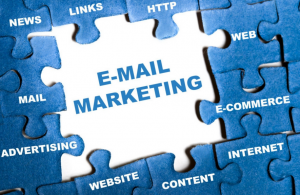 For years, email marketing has been a pre-purchase exercise. Marketers spent almost all of their resources on acquiring customers before selling to them, rather than reaching out to customers after the sale. While this method is obviously effective, it is by no means the be-all and end-all of marketing forms.
For years, email marketing has been a pre-purchase exercise. Marketers spent almost all of their resources on acquiring customers before selling to them, rather than reaching out to customers after the sale. While this method is obviously effective, it is by no means the be-all and end-all of marketing forms.
After the worldwide recession hit in 2008, businesses everywhere responded by cutting their marketing budgets. Advertising expenditures plummeted, global marketing presences were almost eliminated, and sales-focused businesses found themselves running out of buyers. In a new environment of business, companies began turning to uncharted methods to attract customers, leading eventually to an expansion of the email marketing world.
Today, the focus on size over substance is clearly present in almost every form of marketing, from offline resources to online marketing tactics. Marketers brag about their mailing lists, touting millions of readers, all the while ignoring the fact that each reader is almost completely valueless. Despite their massive size, these marketing lists are largely pieced together and almost completely devoid of any post-purchase subscribers.
The money is, as they say, most certainly in the lists, it’s just not in any list. The most valuable marketing resources and the targets of any serious email marketer are the attention of any prospective customer that can, will, and has bought before. Once you have overcome the initial sale, repeat business is as simple as creating additional marketing resources to stay engaged with the customer.
Sometimes it is best to forego the short-term subscription and focus on customers that are ready to buy. Before you start an all-inclusive marketing list, consider these three reasons to keep your list exclusive and limited to customers that have already bought from you before.
- Post-purchase marketing gives you authority through established trust: It is easier to sell a $1000 product to a current customer than it is to sell a $20 product to someone you barely know. Commerce, especially online commerce, is all about building trust and establishing authority. Build trust with a small initial sale and you will give yourself an avenue for larger, more profitable future transactions.
- Customers qualify themselves. Prospects require your qualification: Marketing to new customers is an uphill battle. You are constantly re-evaluating your assumptions to appeal to possibility and quite often they can fail to be worth your time. The vast majority of pre-purchase prospects turn out to be duds and the few that buy from you are typically the types of customers that would buy from you on their own anyways. Focus on fostering qualified customer connections, not indiscriminate and valueless connections coming from anywhere.
- Post-purchase marketing is exclusive and value-adding: Exclusivity is a currency in itself. Marketers have forever capitalized on the “exclusive offer” strategy, offering each customer a one-off opportunity that is available to almost everyone else. While many are content with false exclusivity, true exclusivity gives you a marketing opportunity that is almost completely unparalleled.
The internet, especially over the last few years, has given marketers intense power to undervalue and skim over personal relationships with customers. It has become all too easy to send a generic template email to all contacts instead of differentiating previous purchasers versus prospects. A focus on true exclusivity and one-on-one treatment goes a long way in the world of template emails and form letters, and will be appreciated by your clients, customers, and business contacts.

Speak Your Mind